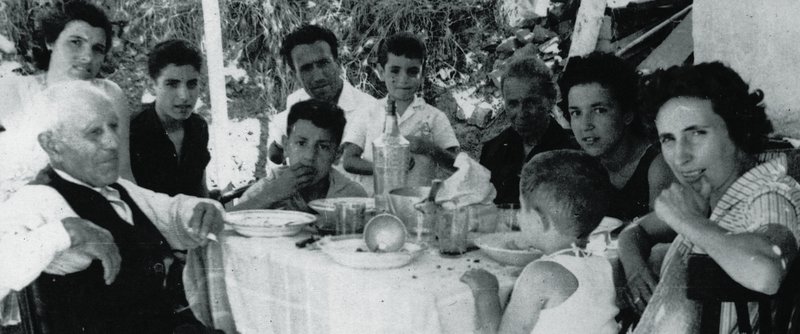The other Catalans
Paco Candel's book 'Els altres catalans', published 50 years ago, remains a key account of the lives of Spanish migrants who moved to Catalonia's suburbs
more than 1.4
million migrants in the country who were born in
other parts of
Spain
Catalonia of
migrants from all over Spain
One night when we went to give a sick man an injection in a tenement housing 14 people, we had to tip-toe so as not to step on anyone, and above all not wake those who had to start work early the next day... In one bed there were four people sleeping like sardines in a tin, head-to-toe. That is why in the summer you see many people in those places sleeping in the street. These arrangements, with their effects on morality, of laxity, negligence and abandonment, destroy family life.”
This excerpt is from the book, Els altres catalans by Francesc Candel, which was first published 50 years ago. It is a very Candelesque description, focusing on the harsh living conditions in one of thousands of rundown tenements that were typical in the suburbs of Barcelona. Half a century later, the slums have gone and their inhabitants are now simply Catalans.
Since its publication, Candel's book has became a point of reference in the controversial history of the arrival in Catalonia of migrants from all over Spain. In February, an event by the Generalitat and the Fundació Francesc Candel led the tributes of Candel, with Artur Mas making the point that Catalan society today is the same one the writer describes: “70% of Catalans were born outside Catalonia or have parents born outside,” he said.
Candel, who was raised in the infamous district of Can Tunis, next to Montjuïc cemetery, knew well those sad, poverty-ridden urban nooks in which lived an unfortunate migrant population, forgotten by the dictatorship and looked down on by the Catalan middle classes. The commercial success that Candel's book enjoyed, which engendered the whole concept of 'The other Catalans', was an impressive feat for the time.
During those years, the outlying ghetto areas of all Catalan cities, and in particular Barcelona's metropolitan area, continued to grow, often chaotically and with terrible living conditions, due to the continuous arrival of thousands of people from Spain's poorest regions. In the 1950s, Candel tells us, this growth of the ghettos was one of the country's most serious problems, while the dictatorship did nothing to remedy it: “It was monstrous,” he concludes.
As the years passed, the pattern was repeated, spreading beyond Barcelona. The country saw an influx of poor migrants looking for work in Catalonia's industries, willing to put up with miserable living conditions, and yet often able to pay their children through university.
“Those non-Catalan children,” writes Candel, “set down roots in a land that was not of their grandfathers. They absorb the sap and plant a seed.”
Nevertheless, this process of planting roots was not easy. Many migrants felt badly treated by native Catalans and, as Candel shows, there was “tension between those from different places and those that considered themselves to be natives.”
Since the end of the 19th century, Catalonia has been a place that has attracted migrants, and today there are more than 1.4 million migrants in the country who were born in other parts of Spain, according to Idescat figures. Most came from Andalusia, Castilla y León, Extremadura, Aragón and La Mancha. From 1910 onwards, the arrival of migrants from the south of Spain began to grow, thanks to industry, with the phenomenon peaking following the Civil War. In 1964, according to the Centre d'Estudis Demogràfics, for the first time half of the population of Catalonia had migrant origins. From 1970, the trend changed and migration from other areas of Spain began to wane. Demographer, Anna Cabré, has shown in her articles that the population of Catalonia in 2010 would never have grown above 2.4 million if it had not been for the migrations, and that Catalonia's economic and social growth in the latter part of the 20th century would have been impossible if it had not been for the cheap labour supplied by migrants.
Candel's book is almost a work of journalism in the way it exposes unacceptable social and working conditions, but it is also a timely reflection on issues of contemporary importance, such as the question of integration, language and Catalan nationalism. Fifty years since its publication, the other Catalans, and their descendants, will continue to play a key and legitimate role in deciding the future of Catalonia, whatever their surname may be.

